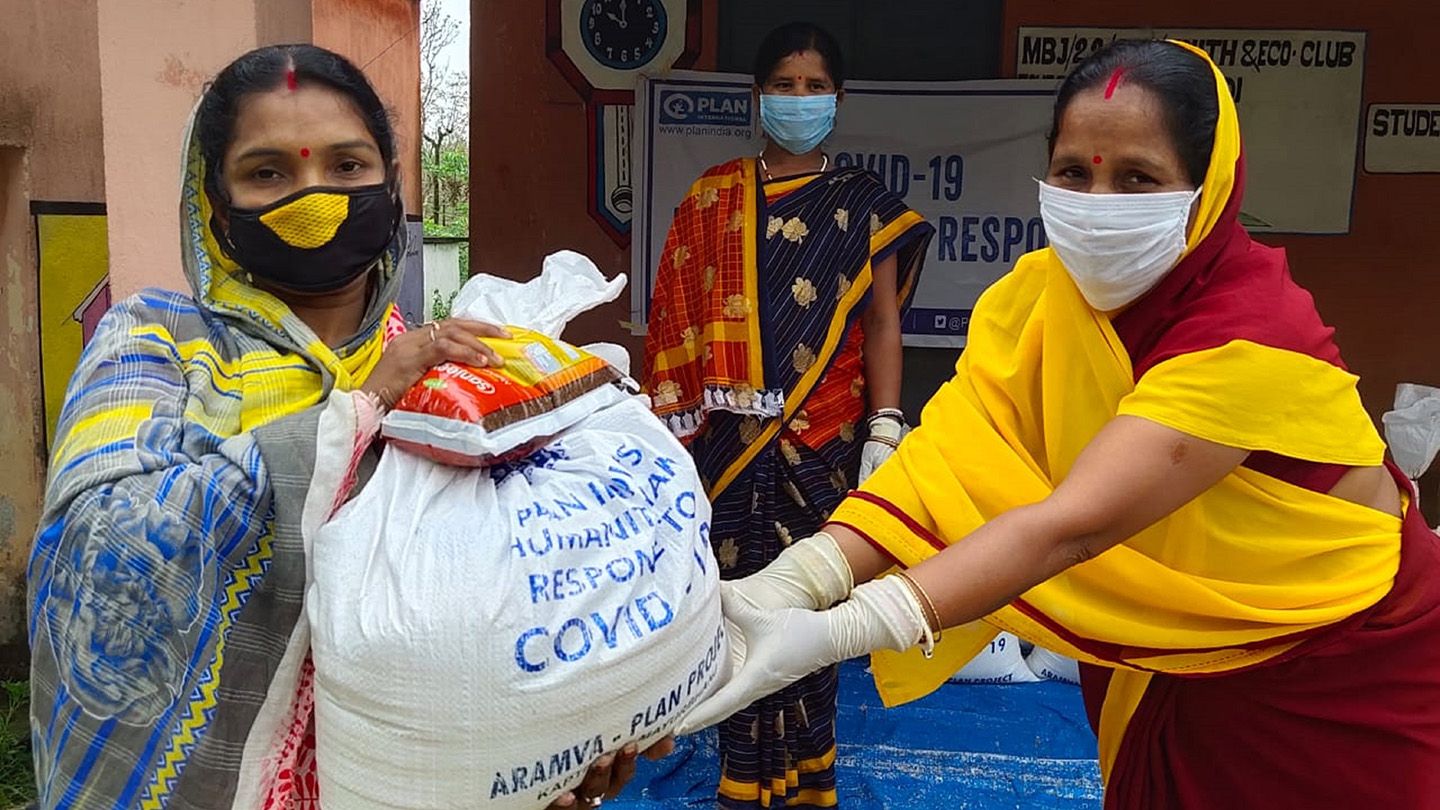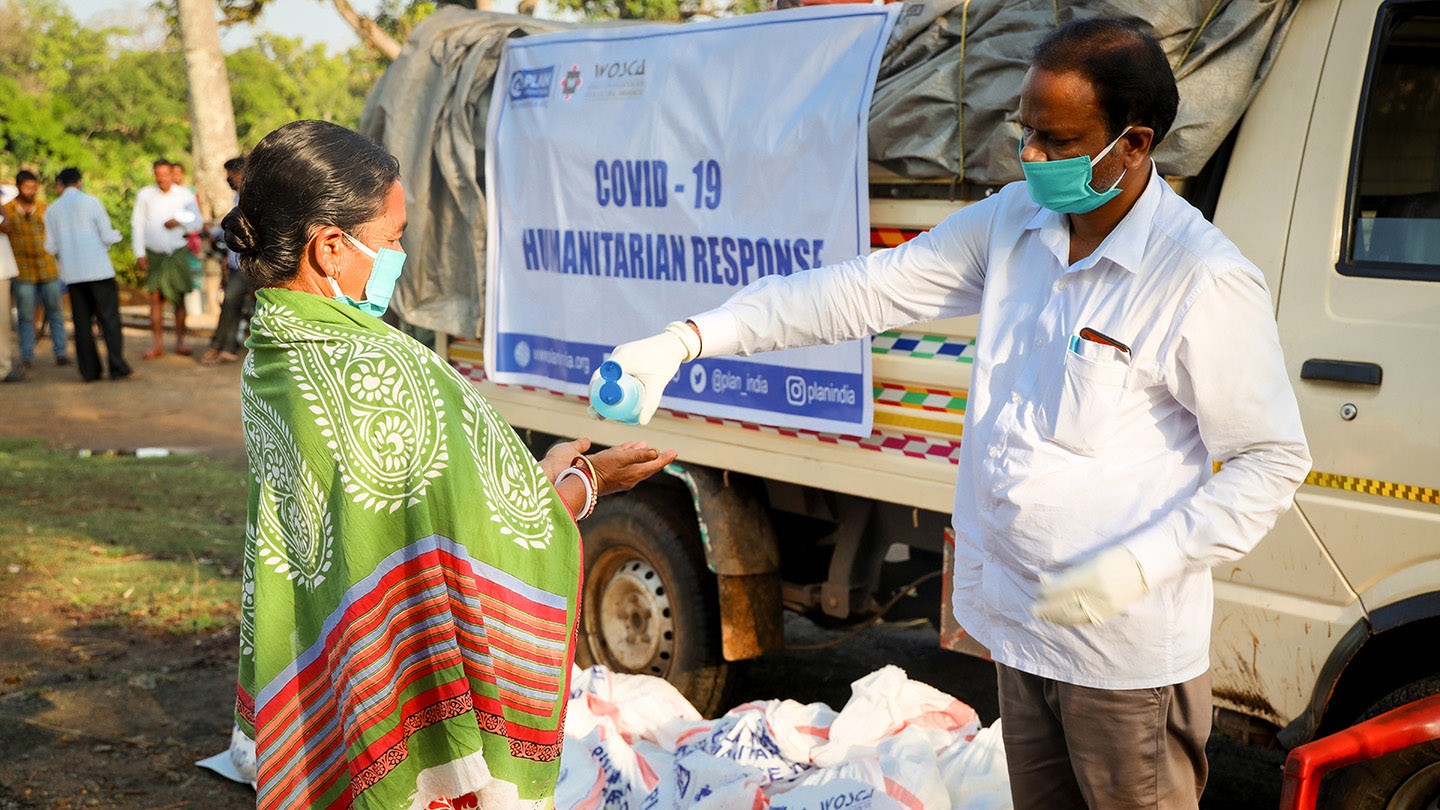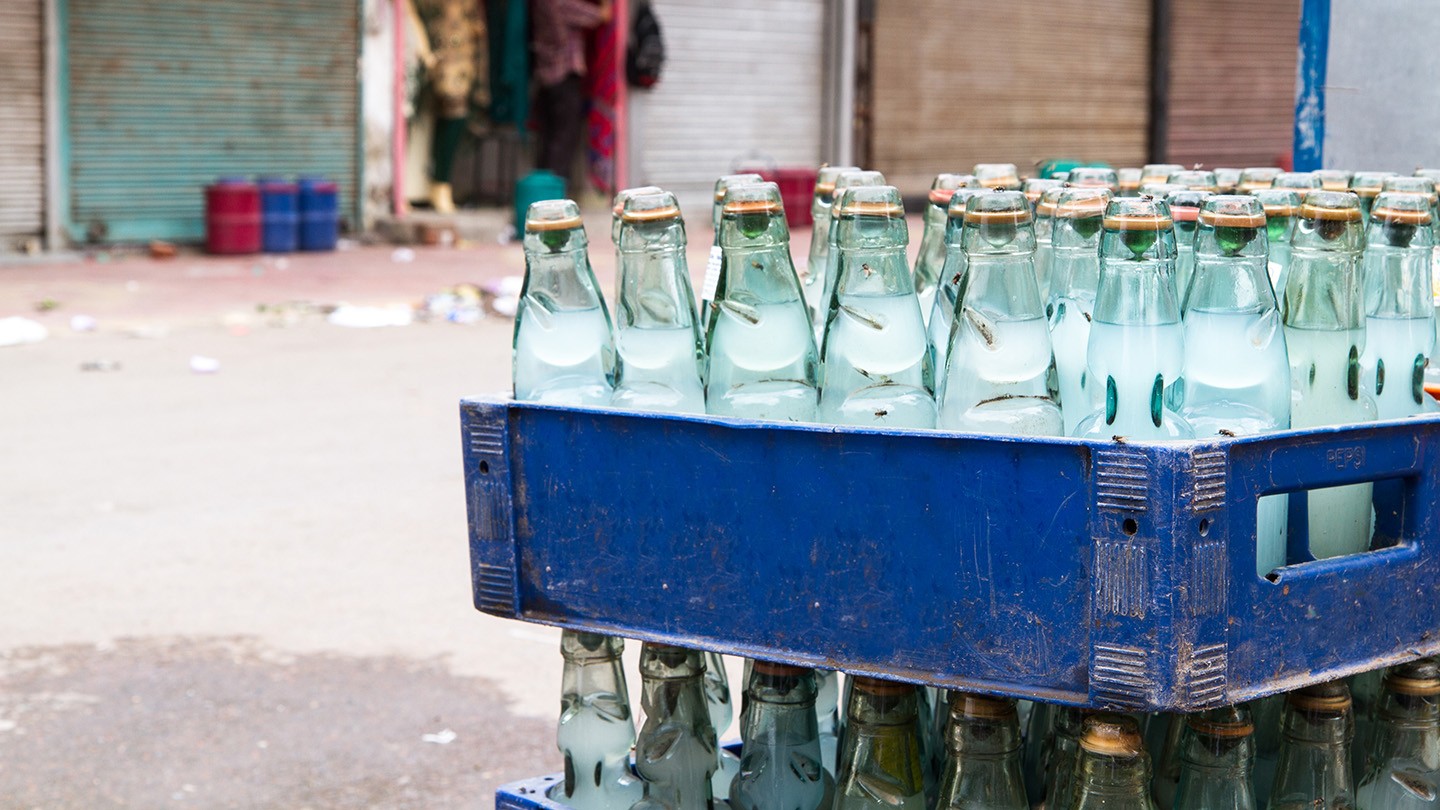
Plan India: “Every person that we reach out to has a story of both distress and resilience”
Halima’s family is one of thousands to have lost their income since the pandemic hit India. Mohammed Asif, Executive Director of Plan India, a charity backed by Barclays’ COVID-19 Community Aid Package, explains how they are supporting vulnerable people like Halima through a dedicated response.
Halima’s life was turned upside down by the pandemic. Her husband, who worked as a driver in a private factory, lost his job when the business closed during lockdown, leaving the family – who live in North West Delhi in India – unable to pay their rent or buy food.
Halima now finds herself forced to make tough decisions about everyday essentials and knows that the wellbeing of her loved ones is at risk. One example she shares is her family’s switch from clean bottled water to tap water, which may not be safe for drinking. “We used to be able to buy clean drinking water, but when the crisis happened we couldn’t even purchase water for the family, so we had to rely on free water, which I know is not good for our health,” she explains.
Thankfully, Halima’s family has become one of around 8,000 to benefit from nutritional dry food baskets, providing a month’s worth of food, distributed by the charity Plan India – thanks in part to support from Barclays’ £100m COVID-19 Community Aid Package, which delivers vital help to organisations around the world that are working with vulnerable people impacted by the pandemic. The baskets are part of a nationwide on-the-ground response that also includes health and hygiene kits.
Tackling COVID-19 in vulnerable communities
“Every person that we reach out to has a story of both distress and resilience,” says Mohammed Asif, Executive Director of Plan India.
Founded in 1979, the charity has focused on advancing children’s rights and equality for girls. Recognising the need to tackle the impact of the pandemic at the start of lockdown, its focus shifted to promoting awareness of the virus among young women, children and vulnerable young people – alongside helping families struggling because of job losses or the closure of their businesses.

Plan India has given out more than 100,000 food packages and hygiene kits to vulnerable families during the pandemic.
People had false notions and ideas about what the pandemic was. We wanted to spread the correct information
Executive Director of Plan India

Halima is forced to make tough decisions about everyday essentials such as clean bottled water.
Since March, Plan India has supported them by distributing more than 100,000 dry food baskets and hygiene kits to vulnerable people across India, while working closely with frontline workers to ensure they have the necessary PPE and sanitisers to stay safe.
Charity workers have also reached out to communities via phone calls, digital platforms and public announcements to combat misinformation about the virus. Asif says this work was particularly important in combating what has long been one of the charity’s key focuses: stigma.
“People had false notions and ideas about what the pandemic was,” he explains. “We wanted to spread the correct information so that people do not discriminate against those who may have contracted the virus.”
Helping women and girls affected by the crisis
The pandemic has also meant adapting some of the charity’s support for women and girls. During lockdown, many women have found it harder to get to healthcare clinics for medication. Plan India has responded by providing a home delivery service for medicines.
Asif says that what started as a public health emergency also has wider implications for gender equality, with girls facing domestic violence and other issues in their own homes. “One of our big focuses has been to get girls and young women to gain work through schooling.”
Working with Barclays: sharing ideas and skills
Barclays’ support for the charity’s relief efforts during the crisis builds on a 10-year relationship through programmes like Banking on Change, an international microfinance initiative which in India supported 32,000 women from resource-poor and underprivileged families. The programme developed and connected local savings cooperatives to the country’s formal banking system to improve safe access to financial services. Asif says the bank’s support goes beyond the financial.
“The connection is not just a donor-recipient relationship – it reaches beyond that, as a partnership for a common cause,” he says, pointing to sharing of ideas and useful business skills.
“Barclays want to keep that learning and bring it back to colleagues within the bank, to create empathy and connection with those people who are struggling during these times and beyond.”
For Halima, while her immediate difficulties have been eased with a supply of basic necessities from Plan India, her future remains uncertain. With the relaxation of lockdown restrictions in parts of India in September and with new job opportunities emerging, Halima wants her family to get back to some kind of normality. “I just hope that my husband will be able to restart work,” she says simply.
Plan India: COVID-19 support in action
Three people in India – a former rickshaw driver, a transgender community leader and a local electorate – share the hardships they’ve faced during the pandemic and how Plan India’s support has helped them to stay resilient.
Yusuf Mohammad
Yusuf, who lives in North West Delhi with his family of five, usually works as an electric rickshaw driver – but was recently injured in an accident which affected his ribs and back. As someone who already had a low income and has a disability, he says the pandemic has worsened the challenges he faces, with his family forced to vacate their house at short notice.
“In the initial days we could manage with our savings”. But as their savings dried up, he explains: “We didn’t have any money available, we took meals at a food bank – but that only gives us food for two people.”
Food rations from Plan India will help support Yusuf and his family for a month, allowing them to spend savings on essentials like vegetables and milk. Now that lockdown has eased, Yusuf has set up a kiosk, and hopes that with this food security, he will be able to explore other job opportunities.
Chandani Gore
Chandani leads a community of transgender people in Pune, who before lockdown made money by taking part in marriage celebrations and festivities to welcome the birth of a new child. Since these events have been restricted by the government, they have lost their incomes. “It’s an enormous challenge, particularly because there is already so much discrimination and stigma against us,” she says.
At a very difficult time and faced with a shortage of food, the ration kits provided by Plan India have been a huge source of support to her community. She adds: “Thank you to Plan India for your support in a time of need, and for including our community in this programme.”
Fateh Bagadur Singh
Fateh is a local electorate in the Siddharth Nagar district of Uttar Pradesh in Northern India. Many people in his constituency are facing difficulties as a result of the crisis, struggling to pay rent or buy essential supplies, such as medicine and baby food. “Their lives have mostly been affected because businesses have had to stop and they don’t have essentials for their households,” he says.
Fateh has supported Plan India’s work by identifying those in need and ensuring the seamless distribution of food and hygiene kits. He says these resources have been greatly appreciated: “It has been a big support and put a new smile on their faces.”
Barclays’ COVID-19 Community Aid Package
Barclays has established a £100m COVID-19 Community Aid Package to support communities impacted by the social and economic crisis caused by the pandemic. It consists of two components: charitable donations to non-profit partners working in the communities where Barclays operates; and a commitment to match personal colleague donations to their chosen non-profits who are helping COVID-19 relief efforts in their communities.
Find out more about Barclays’ COVID-19 Community Aid Package.